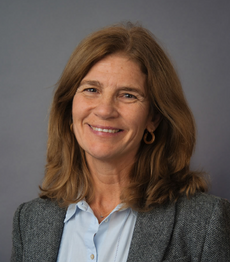ISPAD Declaration of Lisbon 2024
Advancing the Legacy: ISPAD Declarations of Kos and Lisbon
On the occasion of its 50th Annual Meeting in October 2024, held in Lisbon, Portugal, the International Society for Pediatric and Adolescent Diabetes (ISPAD) proudly reaffirms its commitment to the timeless principles of the Hippocratic Oath. This milestone gathering celebrates half a century of dedication to improving the lives of children, adolescents, and young adults living with diabetes worldwide.
The Declaration of Kos (1995): A Historic Commitment

ISPAD’s journey began with the Declaration of Kos, crafted in 1995. This foundational document outlined a shared vision for diabetes care and support, emphasizing the importance of equitable access to healthcare, education, and resources for young individuals living with diabetes. It underscored the essential role of healthcare providers in promoting not just medical well-being but also the social and emotional welfare of those they serve.
Read the full Declaration of Kos here
The Declaration of Lisbon (2024): Building on a Legacy
As we look to the future, ISPAD introduces the Declaration of Lisbon, an updated commitment that reflects the evolving landscape of diabetes care. This new declaration expands upon the principles established in Kos, focusing on promoting optimal health, social inclusion, and a better quality of life for young people with diabetes across the globe.
By adapting to contemporary challenges and advances, the Declaration of Lisbon emphasizes the importance of collaborative efforts, innovative treatments, and advocacy for equitable healthcare systems. It renews ISPAD’s dedication to ensuring that no child or adolescent with diabetes is left behind.
Read the full Declaration of Lisbon here
Monthly Spotlight: Exploring the Declaration of Lisbon
To ensure the principles of the Declaration of Lisbon remain at the forefront of our work, every ISPAD monthly newsletter will spotlight a specific point from the declaration. This initiative will provide insights, updates, and actionable steps for members to incorporate these principles into practice.
For the inaugural feature, ISPAD President Fergus Cameron addresses the first principle, offering his perspective on its significance and implementation.
1. To advance precision diagnosis for all children in all stages of diabetes
Changing environments and demographics, scientific knowledge and technologies over the last 30 years have resulted in new types of diabetes being diagnosed in young people (eg type 2 diabetes and monogenic diabetes) and a recognition that type 1 diabetes is not a uniform condition in terms of immunopathogenesis or metabolic stability (eg stage 1-3 T1D, very early onset vs later onset). Suffice it to say, the suite of diagnostic possibilities and associated therapies has broadened significantly. It is axiomatic that as clinicians we wish to provide the most accurate diagnosis possible to those we provide care. A key example of this is the rare but significant moment that we can tell families of a diagnosis of monogenic diabetes. Such a diagnosis impacts upon both our patients and frequently their extended family. In another vein, national screening programs for type 1 diabetes will require that we can accurately stage the condition for purposes of disease modification trials and other potential interventions. Having differential diagnostic awareness, and access to genetic and antibody screening are key enablers in this area. Personalised long term treatment requires that we have diagnostic certainty rather than just diagnostic suspicion. Precision diagnosis is thus a fundamental foundation of appropriate therapy.
Fergus Cameron - ISPAD President

2. To develop disease-modifying therapies to protect, enhance, or restore the residual beta-cell function aiming for a cure
When insulin was discovered in 1921 it was heralded as a cure for diabetes. While the impact of insulin’s discovery cannot be doubted, it was a treatment for diabetes, not a cure. Now more than a hundred years later scientific advances have led to a better understanding of the autoimmune processes leading to the clinical diagnosis of type 1 diabetes and the opportunity to delay and prevent the need for insulin treatment. The next decades will see the advance of screening programs to identify those who could benefit from immunomodulatory therapies which will also continue to improve. Extending the delay of developing stage 3 type 1 diabetes will lead to prevention. Additionally, cell based therapies provide another avenue of discovery and translation with great promise. ISPAD will continue to be at the forefront of advances in science and care.
David Maahs - ISPAD Past President

3. To make insulin and other evidence-based diabetes treatments more readily available
Ensuring the availability of insulin and other evidence-based diabetes treatments, such as continuous glucose monitoring and automated insulin delivery, is crucial for the survival and well-being of children with diabetes worldwide. In addition, disease-modifying treatments addressing the underlying autoimmune disease in type 1 diabetes and insulin resistance and obesity associated with type 2 diabetes are on the horizon also for the pediatric, adolescent and young adult age group. Despite advances in medical science, a lack of access to these life-saving treatments remains a critical issue, affecting not only the 1.1 million children and adolescents living with type 1 diabetes but also the growing number of youth diagnosed with type 2 diabetes. Addressing the global disparity is essential to improve outcomes and ensure that every child with diabetes can lead a healthy and full life.
From Prof. Catarina Limbert

4. To reduce the morbidity and mortality rate of short-term and long-term complications, including mental health diagnoses, as well as missed diagnoses related to diabetes
The morbidity and mortality profile for youth with diabetes largely depends on the country of birth. In some countries, data from the T1D Index have shown that nearly 1 in 5 children die before they are even diagnosed with type 1 diabetes. Our ability to reduce this inequality depends on our willingness to care for people beyond our own national borders. Children who are fortunate enough to be diagnosed and treated may still struggle to access insulin and essential equipment. As a result, they are at high risk of developing severe complications within the first ten years after diagnosis, making early screening for complications such as retinopathy, neuropathy, and nephropathy crucial. In other countries, early access to continuous glucose monitoring and automatic insulin delivery raises a debate about whether screening for late complications is even necessary during childhood.
However, mental health problems caused by stigmatization, the focus on nutrition, the psychological burden of diabetes, and the constant attention to diabetes often reveal other complications, such as eating disorders, diabetes distress, depression, and anxiety. Although these diabetes-related mental health complications affect up to 30% of individuals, few countries have systematic screening in routine pediatric diabetes care. One of the challenges in addressing mental health issues is their complexity-both parents, siblings, social networks, and the child with diabetes interact dynamically, and the child's role within these relationships changes as they grow and mature.
Morbidity, mortality, and both short- and long-term complications remain challenges for children, adolescents, and young adults worldwide, although the nature and timing of these complications varies by country. While country of birth cannot be changed, caring for those beyond our own borders is possible. ISPAD continues to work towards this goal in partnership with several organizations, including Action4Diabetes, Life for a Child, Changing Diabetes in Children by training healthcare providers and offering access to diagnostic and therapeutic tools.
Jannet Svensson - ISPAD Secretary General

A Milestone and a Movement
The 50th Annual Meeting provided a unique opportunity to honor the visionaries who laid the foundation of pediatric diabetes care and to advocate for renewed priorities for young individuals with diabetes. With the Declaration of Lisbon, ISPAD continues to lead efforts in improving care and outcomes for the next generation.
Join us in celebrating this historic moment and in advancing our shared mission to create a world where children and adolescents with diabetes can thrive.


